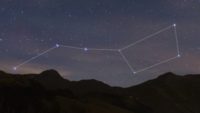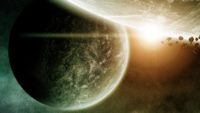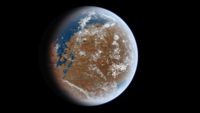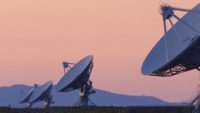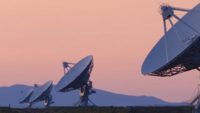By Dr. Timothy L. Clarey The evidence for a large impact at Chicxulub may not be as strong as generally believed. A case can also be made that there was no impact. …read more Read more here: AIG Daily
We went to the moon—isn’t Mars next? ICR Astrophysicist Dr. Jason Lisle gives his perspective on the difficulties in traveling to and colonizing Mars. More… …read more Read more here: icr.org
The discovery of seven planets orbiting Trappist-1, with three in the habitable zone, has given rise to claims of habitability. However, neither life nor even water have been found there. …read more Read more here: creation.com
By Dr. Danny R. Faulkner Three of the planets found orbiting TRAPPIST-1 were within its habitable zone, the area around a star where liquid water might exist on a planet’s surface. …read more Read more here: AIG Daily
Secular scientists are excited about the recent detection of seven Earth-size planets in the constellation Aquarius, a nearby solar system. According to the report, three of the planets orbit a parent star, called TRAPPIST-1, at a distance that would allow water to exist on their surface. Is their excitement merited? More… …read more Read more here: icr.org
Do black holes really exist? If so, what are they? ICR astrophysicist Dr. Jason Lisle sheds light on these mysterious celestial objects. More… …read more Read more here: icr.org
Astronomer Stephen Kane hunts for signs of life in outer space. His team researched a distant star called Wolf 1061. Exoplanets (planets outside our solar system) orbit Wolf 1061, and one of them held the promise of liquid water, a prerequisite for life. More… …read more Read more here: icr.org
Scientists are searching for answers to questions which in theory they shouldn’t even have to ask, especially in regards to gravity. …read more Read more here: creation.com
Did the universe start with the Big Bang? Many Christians believe God used the Big Bang to create all that we see today. But ICR Astrophysicist Dr. Jason Lisle has a different perspective. More… …read more Read more here: icr.org
What “star” did the wise men see? Some say it was a planetary conjunction, and others tell us it was a supernatural manifestation. ICR astrophysicist Dr. Jason Lisle gives his perspective. More… …read more Read more here: icr.org
By invoking a hypothetical to test the hypothetical big bang, two cosmologists develop a model out of nothing. …read more Read more here: creation.com
By Dr. Danny R. Faulkner Here I wish to expand upon the phenomenon that caused Rowbotham’s experiment to go awry. Rowbotham was a victim of a superior mirage. …read more Read more here: AIG Daily
How did the universe begin? Some people say that it came into existence billions of years ago in a massive explosion. But this Big Bang has some big problems. More… …read more Read more here: icr.org
By Dr. Danny R. Faulkner In this article, Dr. Danny Faulkner tests a prediction based upon the flat-earth model and shows that the results of the test contradict the prediction. …read more Read more here: AIG Daily
By Dr. Danny R. Faulkner Why did they pick November 28 as Red Planet Day? On November 28, 1964, NASA launched Mariner 4, the first successful space probe to visit the planet Mars. …read more Read more here: AIG Daily
By Dr. Danny R. Faulkner Scientists increasingly talk and write about the multiverse. What is the multiverse? The multiverse is the belief that our universe is just one of many. …read more Read more here: AIG Daily
Did God use the Big Bang to create the universe? Can we know the age of the earth? ICR physicist Dr. Jake Hebert explores the origin of the universe, recent Ice Age studies, and the relevance of earth age research. Also, learn more about Dr. Hebert as he shares his personal creation journey. More… …read more Read more here: icr.org
Long before ‘modern science’ emerged, the Bible accurately described the hydrologic cycle of our planet. …read more Read more here: creation.com
By Brooke C. Nelson Did this constellation name and idea originate at the same place and from the same people before being scattered throughout the earth? …read more Read more here: AIG Daily
Consider the concept of space as a physical material with a tension and a fourth spatial dimension. …read more Read more here: creation.com
By Dr. Danny R. Faulkner From time to time there are reports of the discovery of a possible earth-like planet. This is the situation of Proxima Centauri b, announced on August 24, 2016. …read more Read more here: AIG Daily
Why the earth is a globe: refuting some mendacious Internet videos …read more Read more here: creation.com
By Dr. Ron Samec Did Mars once contain vast oceans? Some creationists now think so. …read more Read more here: AIG Daily
By Ken Ham Well, several universities and science institutes partnered to create several simulations of what Venus may have been like billions of years ago. They based these models on climate models from Earth. They assumed that Venus and Earth were similar billions of years ago, before Earth’s atmosphere changed from largely carbon dioxide to nitrogen and oxygen. They also assumed that Venus had shallow seas. The more promising simulations assumed that Venus had the same topography that it has today, even though the authors acknowledge that the entire surface of Venus was overturned and altered since then, so we [More]
By Ken Ham Apparently the research team analyzed several hundred thousand stars looking for ones that seemed to disappear. The 148 candidates quickly dwindled to one as they weeded out false positives and negatives. And the one that was left might not actually have disappeared at all “because it looks faint in the second data set.” What I find interesting is that creationists doing real, observational science in astronomy, genetics, or any other field cannot reference a biblical worldview or a Creator God or their work will never be published in a secular journal—even though they have real evidence to [More]
Dark matter is a fudge factor with no experimental support, and new physics explains the observations better …read more Read more here: creation.com
The thinking behind the existence of old objects close to Earth. …read more Read more here: creation.com




















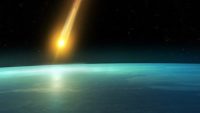
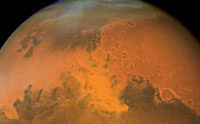

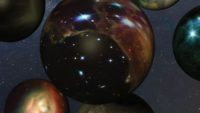
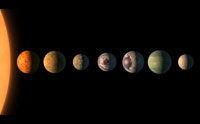
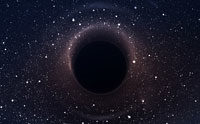
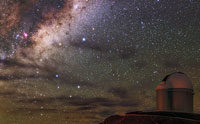

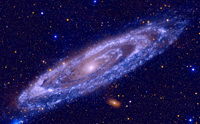





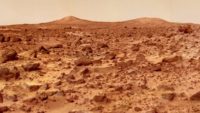
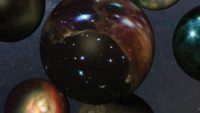
![Creation Physics [Podcast] Creation Physics [Podcast]](http://proofthebibleistrue.com/wp-content/uploads/2016/11/67426-thumb-200x124.jpg)

